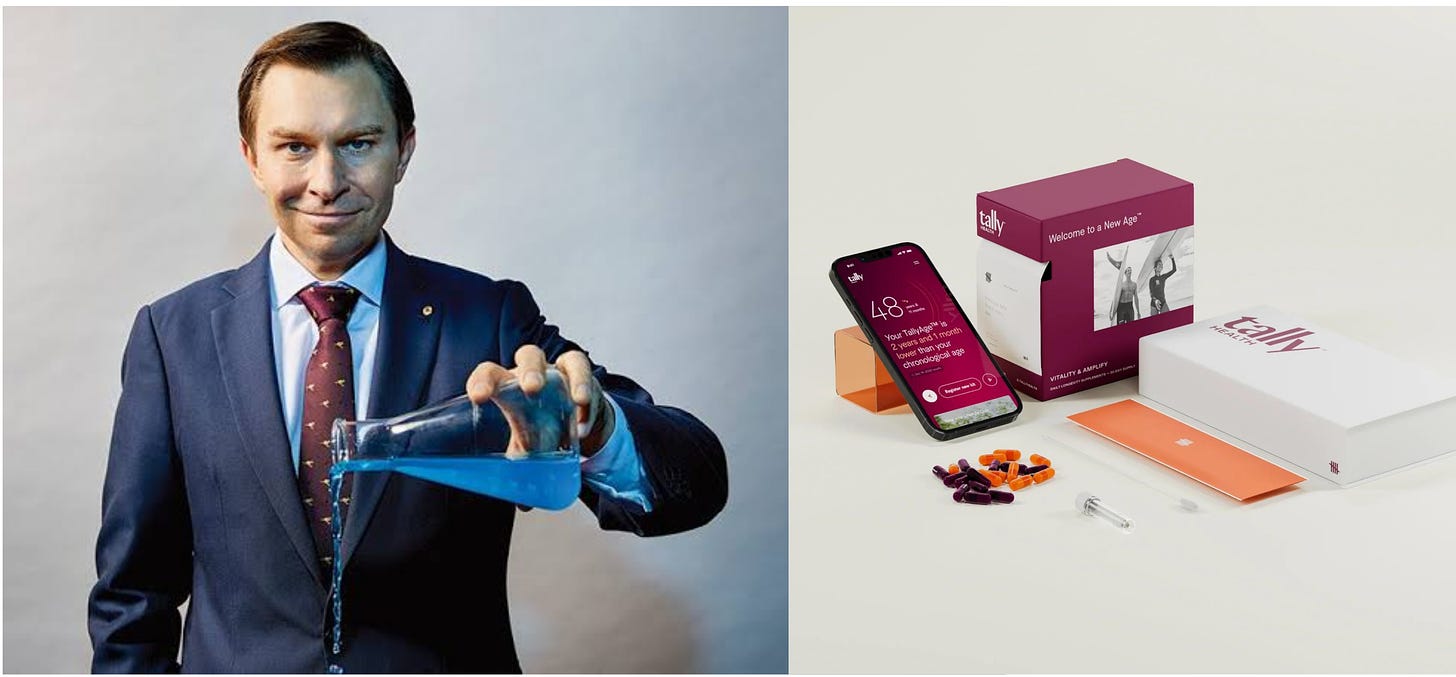Drama in the Longevity Scene
A polarizing figure raises questions about the longevity sector. Plus: A shift in Gen Z wellness, “sad leave,” fitness marketing campaign under fire, and more news and trends.
Updates:
I participated in a roundtable on pseudoscience in health and wellness. You can watch me along with Nick Tiller, Jon Guy, Edzard Ernst, and more. Watch.
Kristin Cavallari went viral when she confessed she doesn’t use sunscreen—and then proceeded to share bad sun care advice. She is, unfortunately, the latest victim of the anti-SPF movement (which I detailed last year).
Read: The Sun Care Market is Growing (But So is an Anti-SPF Movement)
Drama in the Longevity Scene
We have a new word for wellness and it’s 🥁🥁🥁 ….
Longevity!
Congrats to the newest shape-shifting marketing term! You’ll do just fine in our ambiguous, ever-growing industry!
Not too long ago, every brand pursued terms like “natural” and “clean” (before migrating to buzzwords like “holistic” and “mental health”). But today “longevity” (or “rejuvenation”) is all the rage, promising folks vague health claims—usually something revolving around “maximizing healthspan”—to sell nutrition plans, personal care products, and even travel.
Six Senses Resorts now promotes “longevity programs” to look and feel young again, but also to “optimize your core biological systems” (a phrase so fuzzy it’s completely meaningless.) Blue Zones, meanwhile, is cashing in on its moment in the media sun. What once connoted regions where people live longer has seemingly become a marketing cash cow: Blue Zones, LLC partners with brands to sell meal planners, beverages, experiences, canned food, and even hot sauce.
Beauty is another industry getting in on this trend: yes, longevity skincare is a thing now. Earlier this year, L’oreal’s venture capital fund BOLD invested in Timeline, a Swiss longevity biotech company. Then there’s Caudalie, which partners with a longevity guru who has long been on my eye-roll list: David Sinclair. Caudalie announced that Sinclair patented a new molecule that tackles skin aging, no doubt relying on the appeal to authority fallacy.
For those unfamiliar, David Sinclair is an accomplished Harvard Medical School professor and researcher specializing in aging and epigenetics. He is the bestselling author of Lifespan: Why We Age and Why We Don’t Have To. He started a Harvard research institute on aging and founded several biotech companies, drawing in millions of investment dollars. TIME named him one of the 100 most influential people in 2014, hailing him as “the geneticist who is making age reversal real.”
He’s also rather infamous for making claims like he reduced his age by a decade or that his lungs “operate at levels doctors expect to see among adults in their 20s.”
Sinclair is more or less the father of the longevity movement.
But last week, Sinclair was forced to step down as president of the Academy for Health & Lifespan Research. His colleagues ostracized him. Some scientists (including the former dean of Harvard Medical School) publicly called him a snake oil salesman.
His crime?
Keep reading with a 7-day free trial
Subscribe to Well To Do to keep reading this post and get 7 days of free access to the full post archives.





